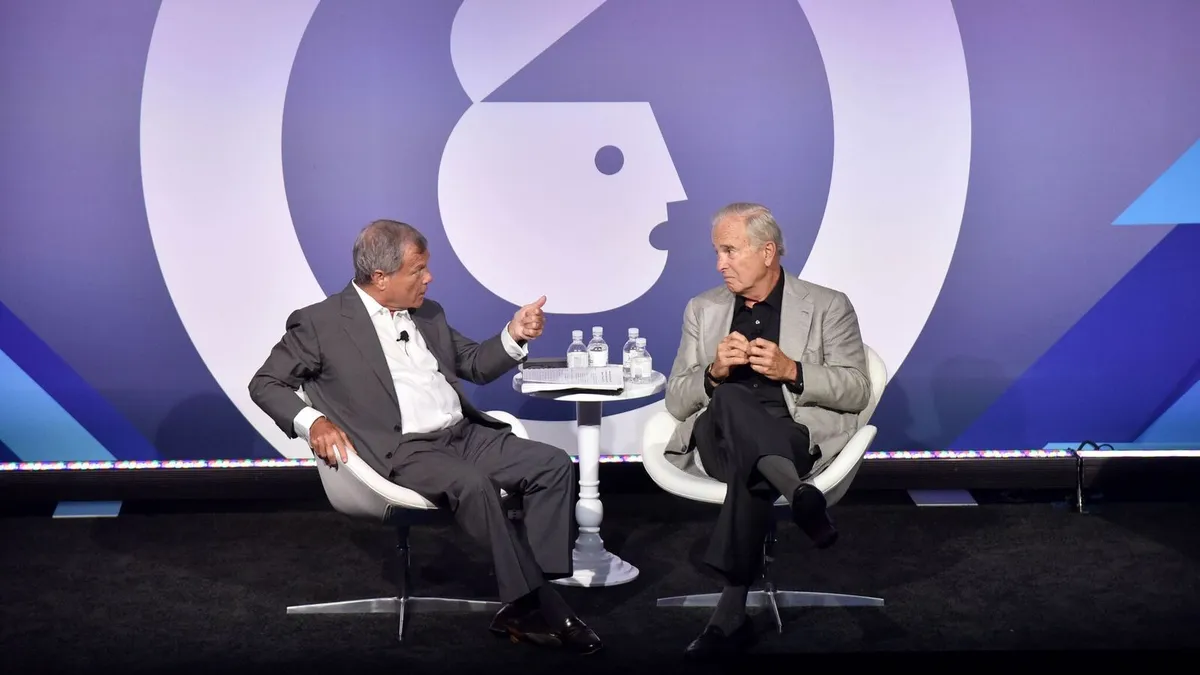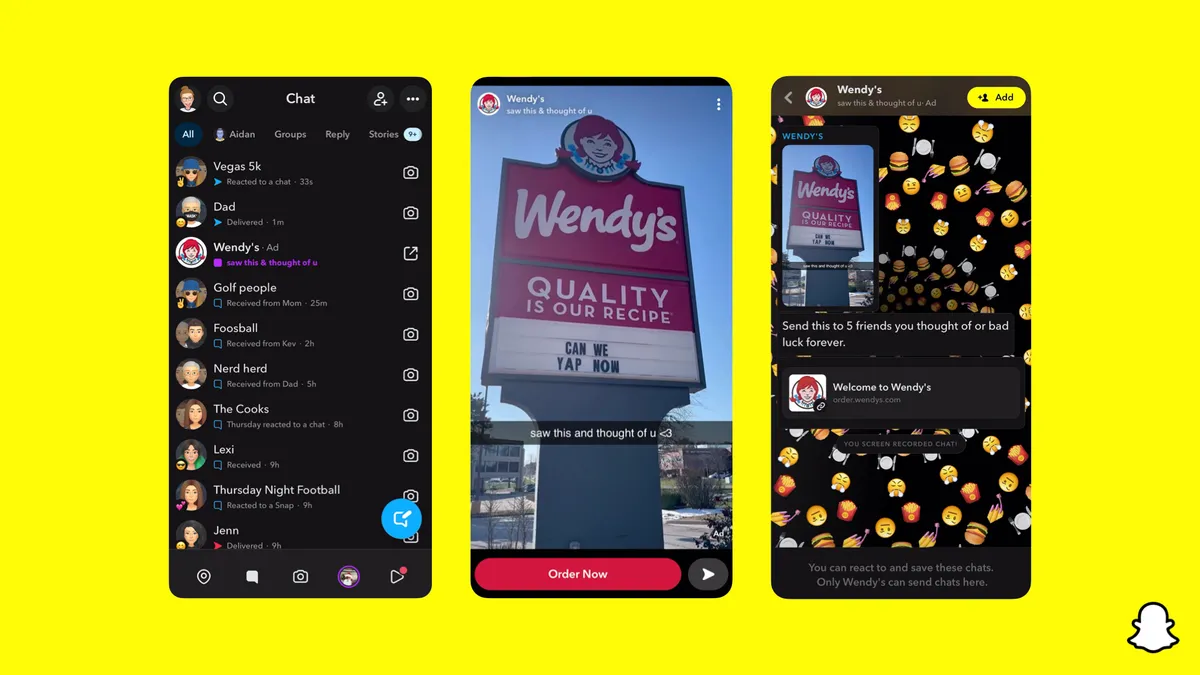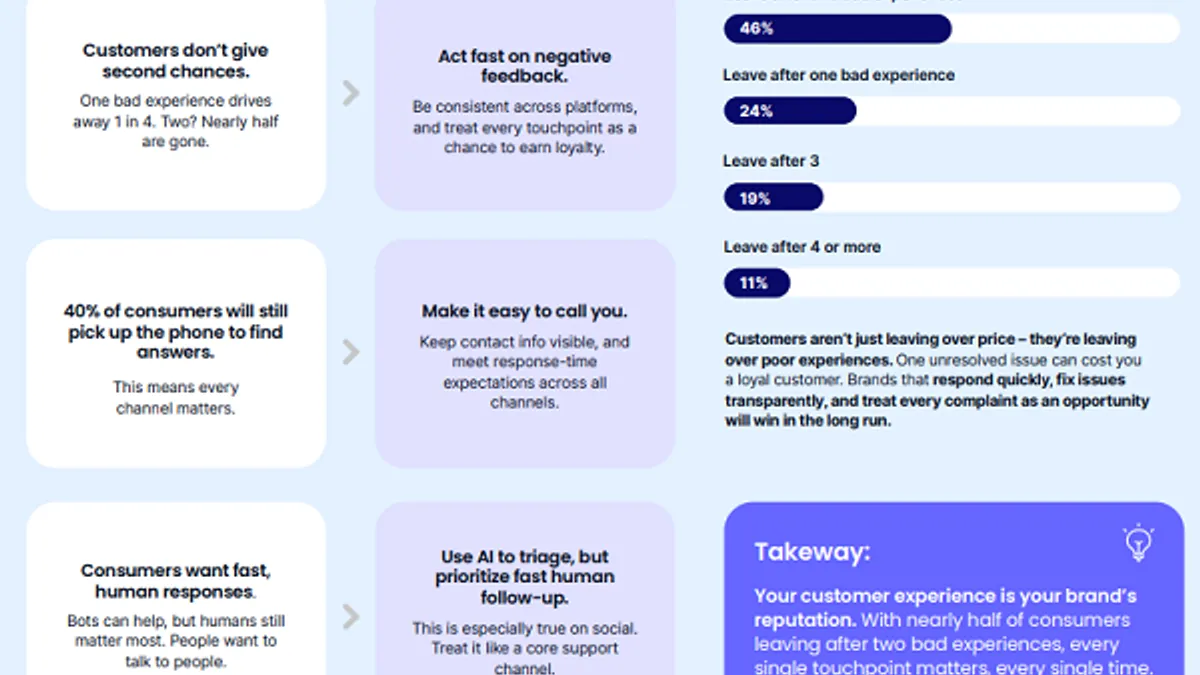Forget buzzwords like influencer marketing, augmented reality or artificial intelligence. The big topic at Advertising Week this year was "control." From brands to agencies and platforms, everyone wants more, but in the amorphous stew that is digital marketing, can any one ingredient ever truly dominate the rest?
There was a lot of talk about brands grabbing control by creating in-house shops and asserting themselves with digital platforms to ensure brand safety and clearer results. At the same time, marketers pondered how to release more creative control to social influencers, who were repeatedly pointed to last week as one of the only tactics that can break through in today's cluttered media landscape.
Amidst the expected sessions on trends like AR and AI at the annual gathering in NYC, there was a lot of hand-wringing as attendees discussed a slew of concerns that have plagued marketing this year, including brand safety and a lack of transparency, as well as issues with agencies and programmatic. One particular area of concern is how big brands are increasingly putting their money where their mouths are when it comes to dissatisfaction with digital marketing by decreasing budgets.
Unfortunately, there were no easy answers presented at Advertising Week. But what did emerge was a series of stepping stones brands can and must try to traverse in the months ahead so they can stay on the path of building awareness and engaging consumers while the industry continues to sort out the bigger issues. Here, in no particular order, are seven lessons from Advertising Week that will impact the marketing industry in the months ahead:
1.) Influencer marketing's role for brands evolves
Not surprisingly, influencer marketing was a hot topic at this year's event, with platforms, brands, agencies and influencers themselves discussing how the space is evolving now that it's moving past a period of testing and toward being an established part of the marketing mix, often being included as a specific ask in brands' RFPs.
"Our influencer content far and away outperforms our professional shoots."

Sarah Anne Spaulding
Social Media Manager, Private Brands at Macy's
The big trends in the months ahead are likely to include influencers translating their success into creating their own brands available in stores and online; more brands partnering with influencers to create content to be featured alongside in-house creative as part of a multichannel campaign, often then investing in paid social to broaden the reach of this content; influencers being used to bring local flavor to global campaigns; and agencies embracing influencers as a way to boost the creative output for a specific campaign.
"For American Rag, we found that our influencer content far and away outperforms our professional shoots," said Sarah Anne Spaulding, social media manager for private brands at Macy's, during an Advertising Week session.
2.) Snapchat finds its place
Despite getting a bad rap this year thanks to slowing user growth and the fact that Instagram and others continue to copy its most innovative features, agency and brand executives still see a place for Snapchat, particularly when brands are looking to reach younger consumers with customized content. As social media matures, individual platforms are developing their own unique personalities: Instagram is a popularity contest while Facebook puts brands in front of the widest possible audience.
Snapchat increasingly is being embraced for its ability to create unique experiences for a specific audience.
"Snapchat is the most personal of all the platforms," Greg Meyer, director of client partnerships at Hyfn, told Marketing Dive.
HBO's CEO Richard Plepler, speaking at Advertising Week in a session with Snapchat's Chief Strategy Officer Imran Khan, pointed to the two platform's shared ideologies around building passionate fans and committing to excellence as one reason for the success of a "Game of Thrones" Snapchat lens that fans could unlock to transform anyone into a White Walker ahead of the show's season 7 premiere. The lens was unlocked by more than 45 million fans and averaged 23 seconds of gameplay.
"People want to get engaged emotionally, and that's why there has been so much catalytic success working together," Plepler said.
3.) Brand safety's in the hot seat, but it still has a spot at the table
This year, marketers have developed a healthy concern for the perception of their brands across digital channels after major companies like McDonald's and L'Oreal saw their advertisements appear alongside hateful and violent videos on YouTube. Many brands immediately pulled their media buys, which led to a short boycott of the video platform. Though YouTube quickly bounced back as the majority of companies returned to the highly valuable platform, the heart of the problem execs discussed at Advertising Week lies in whether the automated and algorithm-driven industry has become too focused on uber-precise targeting of audiences and has subsequently let the context in which their ads appear fall to the wayside.
To navigate the murky landscape, marketers should understand this potential pitfall of the industry and aim to work with agencies to take more control of where ads are placed — or alternatively explore opportunities to leverage earned media, user-generated content and influencers, which all come with their own set of challenges.
"If quality and transparency remain key, there's no reason why programmatic won't grow a much larger share of the digital ad ecosystem."

Tim Cadogan
CEO, OpenX
But despite brand safety being thrown into the spotlight, eMarketer estimates that digital ad spend across the industry will jump nearly 16% in 2017 to reach $83 billion, which was supported by statements from several execs at Advertising Week.
"If quality and transparency remain key, there's no reason why programmatic won't grow a much larger share of the digital ad ecosystem," said CEO of OpenX Tim Cadogan, during a session last week. "Programmatic will continue to capture spend as publishers and buyers instill trust in the companies that can [provide] them with the greatest value — we're already starting to see the industry consolidate around the highest quality tech solutions available."
4.) Experiences will beat out screens
As marketers continue to experiment with how to add value to consumers via the Internet of Things, opportunities of connectedness are often in experiences, not screens, Shel Kimen, global user experience practice manager of Ford Motor Co., said at the Mobile Marketing Association's SM2 Innovation Summit the same day Advertising Week kicked off.
Now with devices like voice assistants, beacons and location-based tools that brands can tap to connect with consumers, marketers are faced with a range of platforms to explore beyond ones that require text and visuals. This means strategies should focus on experiences rather than specific screens as they, along with all devices, will continue to get smarter in the "age of ask."
Look for brands to build strong digital experiences as a way to address the inefficiencies with programmatic buying that marketers like JPMorgan Chase and P&G have brought to light. While advancements like AI could make programmatic more precise, Andy Main, principal with Deloitte Digital, told Marketing Dive that brands should be thinking about building a strategy around owned media, something they can accomplish with strong digital experiences and the data that comes with them.
5.) Getting 'good' data is no longer a problem for marketers — what to do with it is
One question that surfaced at several talks across Advertising Week pertained to data: Not whether marketers can collect it, but instead what constitutes "good" data and the ways in which brands can most strategically apply it as it grows more vast in volume.
"You can enter into a kind of boiling the ocean mentality," Brigitte King, chief consumer officer at L'Oreal, warned on a panel. "You can put a lot of tax on your system.
"You have to start with clarity of what you're going after — use cases are really key," she added. "It's important when you're doing anything within the realm of CRM to have a quick-win mentality."
"That's why for a lot of things you need the human-AI pair; [that] will be the model going forward."

Andy Fisher
Chief Analytics Officer, Merkle
AI was frequently positioned as a solution that will let marketers accrue, analyze and apply their data more efficiently, but some cautioned against completely handing over the reins to technology even as they urged the industry to clean up its house.
"You have to be very careful with AI in a lot of decision-making because what AI does is it looks at the past," said Andy Fisher, chief analytics officer at Merkle, on the panel with King. "It looks at the past, and if that response function has been bad or has been biased, the AI can optimize to the bad or biased response.
"That's why for a lot of things you need the human-AI pair," he said. "[That] will be the model going forward."
6.) In creativity and technology, don't count China out
China's growing presence in the industry was underscored by WPP CEO Martin Sorrell, who, in a talk with journalist Ken Auletta, called out Alibaba and Tencent along with Huawei, as companies that the "Fearsome Five" — Google, Apple, Microsoft, Amazon and Facebook — will need to fear in the future.
"The West basically doesn't want China to succeed," Sorrell said, noting that he doesn't include himself in that group. He and another WPP executive had recently spent two weeks visiting firms around China, and Sorrell called out the size and scale of the campuses of some these companies as indicators of the powerhouses they could become.
"We want to out-compete them," Sorrell said. "They are going to win."
A race to watch now, Sorrell said, will be how Alibaba fares against Amazon as they go head-to-head competing for business in Singapore. While this was just one flashpoint highlighted, Sorrell hinted at other significant areas where the two will clash.
"I was at Alibaba [headquarters] in Hangzhou just days before they launched [TMall] Genie," Sorrell said, referring to the company's Alexa-like digital assistant. "This battle is a major, major battle, and the AI significance of all this is very important."
Perhaps looking to get ahead, WPP's GroupM agency last week announced a partnership with Alibaba. China will also continue to emerge as a significant source of mobile marketing innovation in the months ahead. Brand Yasmin and agency PHD China took home several Golds last week for their "Sex-Ed Revolution" campaign at the Mobile Marketing Association's 2017 Global Smarties Awards.
It was one of several efforts from China to be recognized last week at the group's SM2 Innovation Summit. The effort reached more than 18 million university students in China with educational videos on a taboo topic by inserting them in a popular app for students.
7.) Global marketers must prepare for GDPR now
One elephant in the room last week was the EU's current regulatory crackdown and the looming approach of the General Data Protection Regulation (GDPR). The policy, which is now just eight months away from going into effect, could slap brands and platforms with millions in fines if they don't comply with its standards.
"The GDPR will materially increase the burden placed on marketing and product teams when collecting and processing data on EU citizens by simultaneously expanding the definition of personal data, increasing restrictions for the way data is used and adding explicit consent requirements before data is collected," Bill Magnuson, CEO and co-founder of Appboy — soon to be Braze — explained in a follow-up statement.
"With fines for non-compliance valued at the greater of €20 million or 4% of worldwide business turnover, being good stewards of user data is more important than ever," he said.
Though global marketers must start prepping for GDPR, WPP's Sorrell noted that the ramp-up in pressure from governing bodies like the EU on major ad platforms like Google and Facebook does have its benefits. In fact, he suggested it might be one of the factors making these platforms keen to deepen their relationships with advertisers.
"I think Google and Facebook have become friendlier frenemies or flexible friends," the exec, a frequent and vocal critic of the duopoly, said. "Because with scale and size comes responsibility."






















